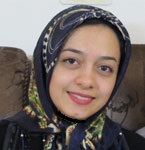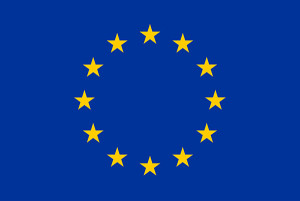The public defense of Soheila Sheikh Bahaei’s licentiate thesis in Computer Science and Engineering will take place at Mälardalen University, room Lambda, Västerås Campus and online/Zoom, at 13.15 on September 2, 2020.
 Title: “A Framework for Risk Assessment in Augmented Reality-equipped Socio-technical Systems”.
Title: “A Framework for Risk Assessment in Augmented Reality-equipped Socio-technical Systems”.
Serial number: 293.
The faculty examiner is Professor Philippe Palanque, University of Paul Sabatier, France, and the examining committee consists of Docent Johan Bergström, Lund University; Professor Anna Syberfeldt, University of Skövde; and Professor Philippe Palanque, University of Paul Sabatier, France.
Reserve; Professor Jakob Axelsson, Mälardalen University.
Summary
New technologies, such as augmented reality (AR) are used to enhance human capabilities and extend human functioning; nevertheless they may cause distraction and incorrect human functioning. Systems including socio entities (such as humans) and technical entities (such as augmented reality) are called socio-technical systems. In order to assess risk in such systems, considering new dependability threats (i.e., faults, errors, and failures) caused by augmented reality is essential. For example, failure of extended human functions is a new type of dependability threat introduced to the system because of new technologies. In particular, it is required to identify these new dependability threats and analyze entities and system behavior to be able to uncover their potential impact.
This thesis aims at providing a framework for risk assessment in AR-equipped socio-technical systems by identifying and classifying human failures including AR-extended human failures and by identifying and classifying faults leading to human failures including AR-caused faults. Our work also provides modeling capabilities for socio-technical systems, to enable modeling of AR-relevant dependability threats used for extending analysis techniques to address the requirements for AR-equipped socio-technical systems analysis. To achieve this, we propose a human function taxonomy by extracting functions from state-of-the-art human failure taxonomies, organizing and harmonizing them in addition to extending the taxonomy by adding AR-extended functions extracted from experiments and studies on augmented reality.
Besides, we propose a taxonomy of faults leading to human failures by extracting faults from state-of-the-art taxonomies, organizing and harmonizing them in addition to extending the taxonomy by adding AR-caused faults extracted from studies and experiments on augmented reality. In the context of socio-technical system modeling, AR-extended human functions and AR-caused faults are transformed into enhanced modeling elements for both human and organizational entities. SafeConcert, which is a metamodel for modeling socio-technical systems, is used as the basis for extension of socio entities modeling elements. This extended metamodel can then be used to augment the risk analysis techniques used for socio-technical systems analysis. Concerto-FLA, which is a risk analysis technique for analyzing socio-technical systems, is used as the basis for analyzing system behavior. We show the applicability of our modeling extensions on academic examples and we also conduct a case study to evaluate the analysis capabilities of the provided extensions.

 This project has received funding from the European Union’s Horizon 2020 research and innovation programme under the Marie Sklodowska-Curie grant agreement No 764951.
This project has received funding from the European Union’s Horizon 2020 research and innovation programme under the Marie Sklodowska-Curie grant agreement No 764951.